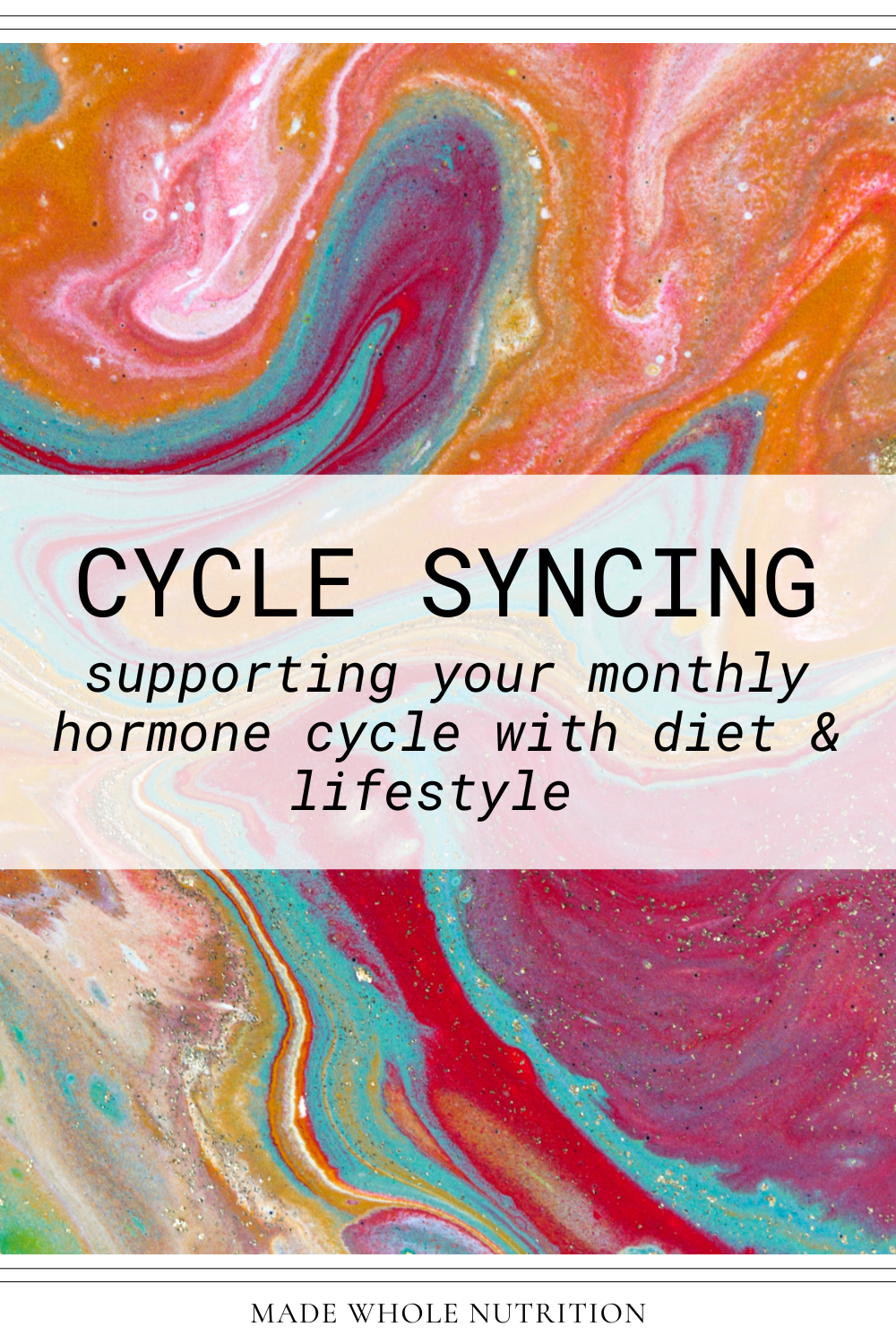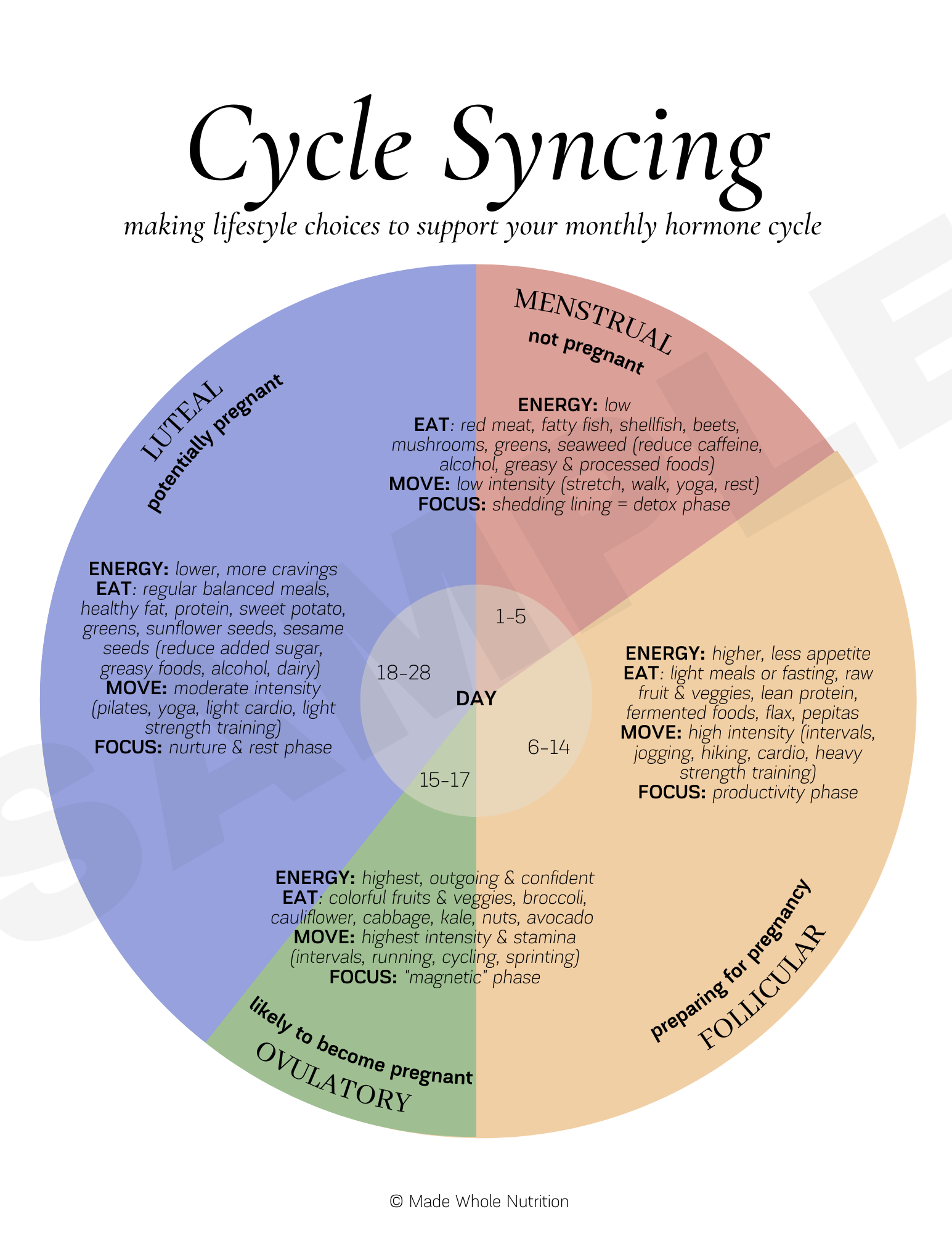CYCLE SYNCING: supporting your monthly hormone cycle with diet & lifestyle
What is CYCLE SYNCING?
Cycle syncing is making diet & lifestyle choices to support the monthly female hormone cycle.
MENSTRUAL PHASE
"not pregnant"
ENERGY: low
EAT: red meat, fatty fish, shellfish, beets, mushrooms, greens, seaweed (avoid caffeine, alcohol, greasy & processed foods)
MOVE: low intensity (stretch, walk, yoga, rest)
FOCUS: shedding lining = detox phase
FOLLICULAR PHASE
"preparing for pregnancy"
ENERGY: higher, less appetite
EAT: light meals or fasting, raw fruit & veggies, lean protein, fermented foods, flax, pepitas
MOVE: high intensity (intervals, jogging, hiking, cardio, heavy strength training)
FOCUS: productivity phase
OVULATORY PHASE
"likely to become pregnant"
ENERGY: highest, outgoing & confident
EAT: colorful fruits & veggies, broccoli, cauliflower, cabbage, kale, nuts, avocado
MOVE: highest intensity & stamina (intervals, running, cycling, sprinting)
FOCUS: "magnetic" phase
LUTEAL PHASE
"potentially pregnant"
ENERGY: lower, more cravings
EAT: regular balanced meals, healthy fat, protein, sweet potato, greens, sunflower seeds, sesame seeds (avoid added sugar, greasy foods, alcohol, dairy)
MOVE: moderate intensity (pilates, yoga, light cardio, light strength training)
FOCUS: nurture & rest phase
Are you a health educator that wants to use this content with your clients? Customize the handout template in less time than it would take to even think about hiring a graphic designer.
References
Vitti, A. Cycle Syncing. Flo Living. Retrieved from https://www.floliving.com/floliving-blog/.
Baker, F. C., & Driver, H. S. (2007). Circadian rhythms, sleep, and the menstrual cycle. Sleep medicine, 8(6), 613–622. https://doi.org/10.1016/j.sleep.2006.09.011
Escalante Pulido, J. M., & Alpizar Salazar, M. (1999). Changes in insulin sensitivity, secretion and glucose effectiveness during menstrual cycle. Archives of medical research, 30(1), 19–22. https://doi.org/10.1016/s0188-0128(98)00008-6
D'Eon, T., & Braun, B. (2002). The roles of estrogen and progesterone in regulating carbohydrate and fat utilization at rest and during exercise. Journal of women's health & gender-based medicine, 11(3), 225–237. https://doi.org/10.1089/152460902753668439







